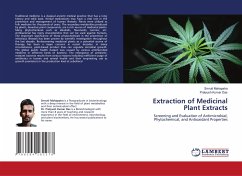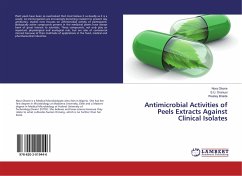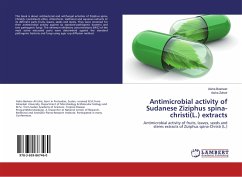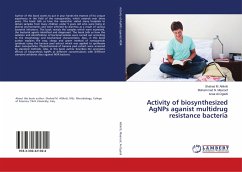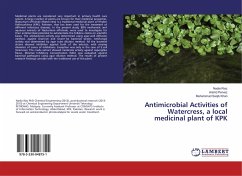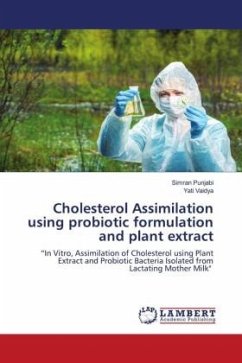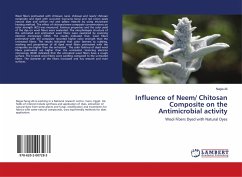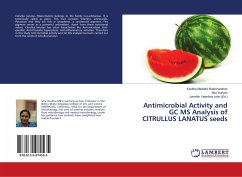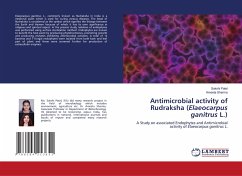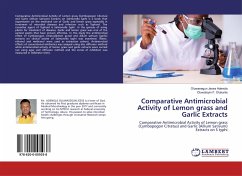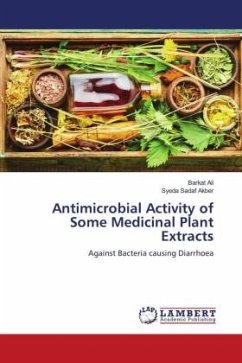
Antimicrobial Activity of Some Medicinal Plant Extracts
Against Bacteria causing Diarrhoea
Versandkostenfrei!
Versandfertig in 6-10 Tagen
29,99 €
inkl. MwSt.

PAYBACK Punkte
15 °P sammeln!
Medicinal plants like herbs, herbal medicines, pharmacologically active plants, or phytomedicines remain the dominant sort of medicine in most developing countries. This book was designed to investigate the antimicrobial activity of selected plant extracts. This study demonstrates that the methanol extract of Glycyrrhiza glabra, Papaver somniferum, Zingiber officinale, Syzygium aromaticum, and Coriandrum sativum were active against all the test organisms. They exhibited inhibitory as well as bactericidal characteristics against all tested organisms with the exception of Cedrus deodar, Cupressu...
Medicinal plants like herbs, herbal medicines, pharmacologically active plants, or phytomedicines remain the dominant sort of medicine in most developing countries. This book was designed to investigate the antimicrobial activity of selected plant extracts. This study demonstrates that the methanol extract of Glycyrrhiza glabra, Papaver somniferum, Zingiber officinale, Syzygium aromaticum, and Coriandrum sativum were active against all the test organisms. They exhibited inhibitory as well as bactericidal characteristics against all tested organisms with the exception of Cedrus deodar, Cupressus semepervirens, which had low inhibitory properties but high cytotoxicity This study demonstrates that the methanol extracts of Glycyrrhiza glabra, Papaver somniferum, Zingiber officinale, Syzygium aromaticum, and Coriandrum sativum were active against all the test organisms. They exhibited inhibitory as well as bactericidal characteristics against all tested organisms, with the exception of Cedrus deodar, and Cupressus semepervirens, which had low inhibitory properties but high cytotoxicity.



